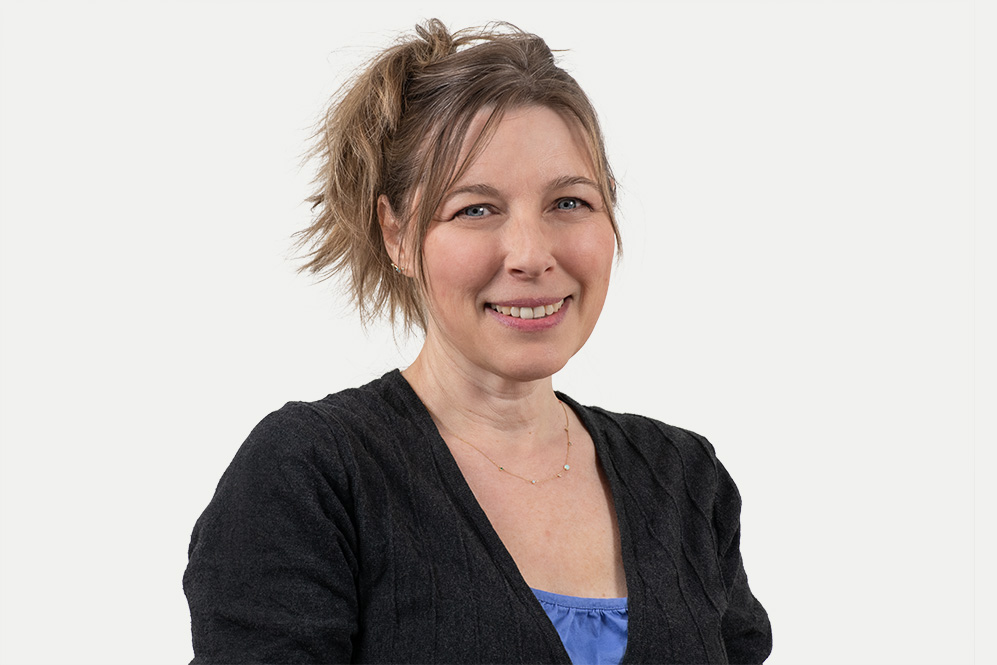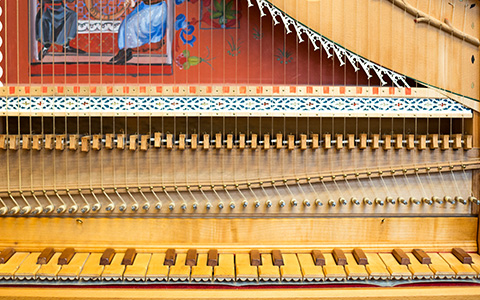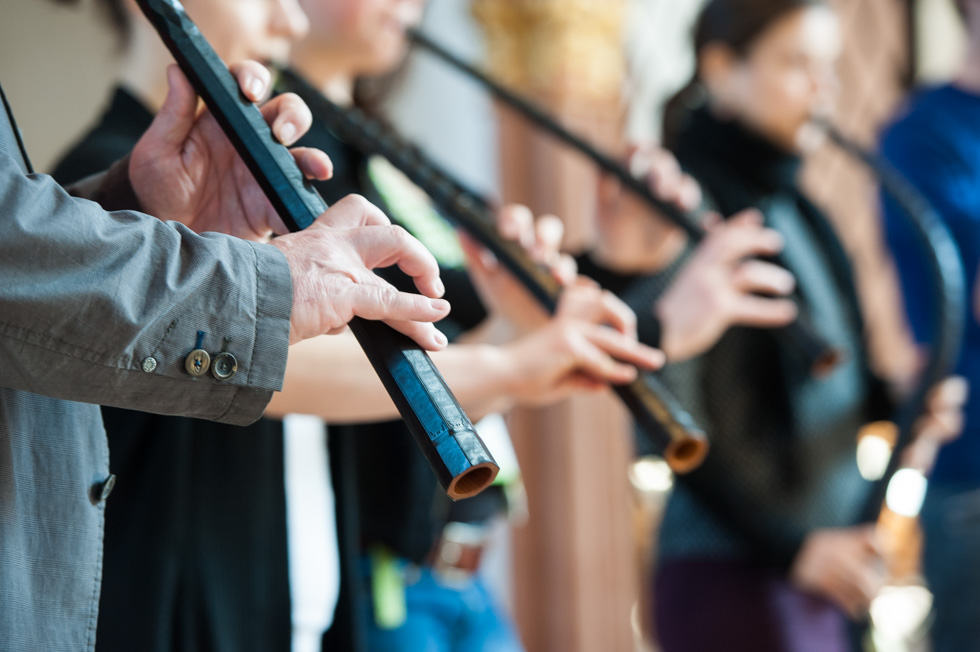BA Music | Early Music Medieval – Renaissance instrument/voice
Hochschule für Musik Basel
A diverse and international community of lecturers and students awaits you at the Schola Cantorum Basiliensis. The Medieval programme is the world’s only full-time Bachelor’s programme of its kind. It combines technical support on instruments from the Middle Ages and the early Renaissance with contemporary vocal techniques. The programme offers a specialisation in repertoire studies and historical improvisation practice. Students gain access to the theoretical and music-historical basis for musical practice.
.jpg)
- Technical and musical support, instrument/voice
- Historical music practice based on source work
- Development of one’s own artistic personality as a soloist and as part of an ensemble
Steckbrief
Zukunftsaussichten
What is a Lute, Gittern, Citole, Cetra, Cythara? Which medieval plectrum instruments can be learned and studied at the Schola?
Prof. Marc Lewon, Schola Cantorum Basiliensis, presents medieval plectrum instruments
Learning outcomes
The aim of this Bachelor degree programme is to develop the independent artistic personality of instrumentalists and singers with excellent musical and technical ability, both as soloists and ensemble performers. It also imparts specific knowledge of music theory and history pertinent to Early Music, which will equip students to make independent and well-founded decisions about performance practice and aesthetics. This artistic and intellectual autonomy is necessary in order to succeed in a market which is dominated less by traditional institutional employers and more by an interest in the creativity and persuasiveness of individual musicians.
Career prospects
As a rule, the Bachelor degree programme prepares students for continuing their education at graduate level (Master’s). However, the experience and skills acquired during this course of study are also transferable to other professions, such as musicology, music journalism, publishing, music management and instrument making.
This particular Bachelor degree programme does not have a teacher-training component. Students wishing to pursue a career as a music educator may apply for the special Master's degree programme in Music Pedagogy upon completion of the Bachelor's studies. Career opportunities for Medieval-Renaissance music specialists include performance work in concert, festival, and Early Music concert series settings. As expert ensemble musicians, holders of this BA are qualified to play with existing ensembles or establish their own ensemble. A number of graduates opt to pursue a career in academic research within their chosen field of specialisation, while others choose to share their experience and expertise in workshops and masterclasses.
Permanent employee positions are rare in this field.
Target audience
This SCB Bachelor degree programme is aimed at highly talented instrumentalists and vocalists wishing to acquire an undergraduate qualification in the study and practice of medieval and early Renaissance music. A separate track is offered for students wishing to specialise in music from the Late Renaissance through the Romantic periods (see course description: Bachelor degree with a Renaissance-Romantic specialisation).
Students should be highly qualified and prepared to dedicate themselves to a course of study and training in historical performance practice that meets the highest artistic standards. Prerequisites are: talent, high level of ability (voice/instrument) as well as potential for further artistic development, experience in Early Music and an interest in the historical foundations underpinning its practice.
Aufbau und Inhalte
History window: Music in the Middle Ages
Prof. Dr. Marc Lewon and Prof. Dr. Johannes Menke of Schola Cantorum Basiliensis as a guest on the podcast
The Schola Cantorum Basiliensis (SCB) offers a Bachelor of Arts in Early Music with a specialisation in the Medieval-Renaissance eras. As such, it is the only full-time undergraduate study programme of its kind in the world. The programme focuses on improving students’ mastery of medieval and early Renaissance instruments and vocal techniques, coupled with an in-depth study of Early Music repertoires and extensive exposure to historical improvisation practices. At the same time, students acquire an excellent foundation in music theory and history, which will in turn inform the development of their own musical practice.
Extensive ensemble-playing experience
Thanks to its exceptionally talented teaching staff and students, the Medieval Department of the SCB offers an array of opportunities for ensemble work. As a result, students are able to develop their artistic autonomy and gather valuable practical experience working with early source materials and notations.
In addition to singing, the Early Music Bachelor degree programme is offered for the following instruments:
- Medieval plucked string instruments: plectrum lute, harp etc.
- Medieval keyboard instruments: organetto, clavicytherium, clavicymbalum etc.
- Medieval string instruments: vielle (da braccio and da gamba) etc.
- Medieval wind instruments: recorder, traverso (transverse flute), shawm
Modules and Reglements
The BA and MA degree programs at the Basel Academy of Music are based on modules.
The legally binding structure provides an initial guide to the content and weighting of the subjects on the degree program.
The detailed content and modalities of the individual subjects can be found in the module descriptions.
The study regulations come into force together with the study and examination regulations of the Basel Academy of Music FHNW and form the legal framework.
Vertiefungen
International
Leitung und Dozierende

Mitglied der Leitung SCB, Studiengangsleitung Bachelor und Master Mittelalter-Renaissance, Master Musikpädagogik

Mittelalter Abteilung

Dozierende der Schola Cantorum Basiliensis
Unsere international renommierten Dozierenden auf einen Blick
Voraussetzungen, Zulassung, Eignungsabklärung
Admission
To be admitted to the Master’s programme, applicants must have passed the admission procedure. It breaks down as follows:
- verification of the admission criteria
- submission of all necessary registration documents in time
- passing the entrance exam
- a free place at the Academy was offered to the applicant (limited places of admission)
Admission shall be granted for the academic year to which the entrance exam applies to.
Language skills
We expect students to have good German language skills at the beginning of the studies. Students who are not German native speakers must present at least a B1 German language certificate (according to the Common European Framework of Reference for Languages (CEFR)) at the beginning of the studies.
